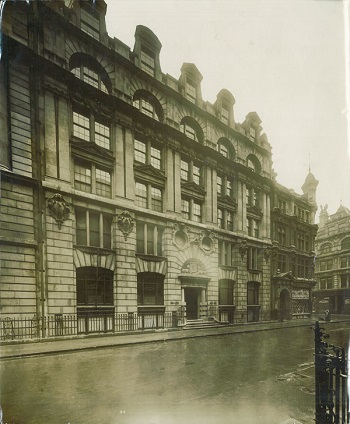The Australian Alert Service is the weekly publication of the Australian Citizens Party.
It will keep you updated on strategic events both in Australia, and worldwide, as well as the organising activities of the Citizens Party.
To subscribe to the Australian Alert Service, it's easy, and it's secure.
Lead Editorial
15 December 2021
Vol. 23 No. 50
As before the two world wars in the 20th century, a global financial crisis risks an outbreak of global hostilities. The global economic breakdown which has been brewing for decades, as a result of failed neoliberal economic policy, has exacerbated global tensions, especially as the Anglo-American powers watch their economies crumble and they lose ground to China and its growing number of economic partners.
Solving the economic breakdown with tried-and-true mechanisms such as national banking and an emergency economic rebuilding program will also resolve the seemingly insoluble financial quagmire, characterised by a string of close-call blow ups.
The pre-World War II financial crisis, beginning with the Great Crash of 1929 and the subsequent Great Depression, is well known, but lesser known is the pre-World War I upheaval. From mid-1914 the City of London was at the centre of a fast-growing financial crisis. Some 50 nations saw financial chaos: a shortage of liquidity, runs on banks, dumping of assets, withdrawal of credit, hoarding of gold, stock market seize-ups and currency crashes.
London banks experienced such a serious run on deposits that they informed the Bank of England they would not reopen without declaration of a moratorium, which was subsequently implemented to give debtors a reprieve and limit calls on bank liquidity. An unprecedented four-day bank holiday took place and the London Stock Exchange was closed for five months. The Bank of England subsequently raised interest rates from 3 per cent to 10 per cent, a move soon to become part of a suite of measures that formed London’s economic austerity doctrine and defined the agenda it pushed globally after the war. This included creation of supranational institutions to dictate nations’ financial and economic policy in accord with the austerity doctrine. Nations were locked into budget balancing, slashing of public expenditure and wage cuts, in explicit opposition to the policy of national banking, which would have seized control from the elite private banking fraternity and used the power of public banking for the common good of the nation. Australia’s Old Labor leaders, including the founders of the Commonwealth Bank, fiercely clashed with this faction which they identified as the “Money Power”, as documented in the Australian Citizens Party’s history magazine, The fight for an Australian Republic (1999).
Ironically, during the 1914 London crisis, all except for Australia’s government-owned Commonwealth Bank (its UK branch located in the City) availed themselves of the bank moratorium, which lasted from early August until November. According to a history of the bank by C.C. Faulkner, The Commonwealth Bank of Australia, the bank “did not find it necessary to take advantage of the legal respite, and the Bank continued to make payments without interruption”. The bank had a simple plan: to put on extra tellers and pay people out “with the utmost promptitude” to prevent crowds gathering at their doors. It worked. As well as backing other Australian banks in London and providing credit for the Australian government’s war effort, the bank even assisted the British government with financial arrangements.
Not unlike the lead-up to the past world wars, today’s war hawks are covering their actions—which will inexorably lead to war—in the cloak of defending the current world order, which includes the globalised banking system controlled from London and Wall Street. Those warmongers, now claiming to defend “democracy” (p. 14), are the authors of pre-emptive wars, regime-change operations and “colour revolutions”, causing mass death in Afghanistan, Iraq, Libya and Syria, among other nations. They are willing to provoke a global war to defend their failing economic order; those of us who want to reform the system through national banking must draw extra motivation from the fact that this is also the only way to avert war.
STOP PRESS: Third Sterling First-ASIC hearing today hears from Denise Brailey and ASIC. See the Citizens Report on YouTube for updates.
In this issue
- Australian politicians must grow a spine to stop persecution of Assange
- Let’s make a postal bank an election issue!
- Commonwealth Postal Savings Bank Q&A, Livingstone Shire Council
- Commonwealth Development Bank inspired ‘bold new schemes’
- Urgent! A development bank to unleash manufacturing
- Inflation equation: Where does the money go?
- Tide of inflation unstoppable under current framework
- Australian jurists warn USA against self-destructive geopolitics
- ‘Democracy’ summit: recipe for war
- Postal banking captures nation’s hopes
- Four years of stunning Citizens Party breakthroughs
- ALMANAC: With friends like these… Allies profit from Australia’s war-drive
Click here for the archive of previous issues of the Australian Alert Service








